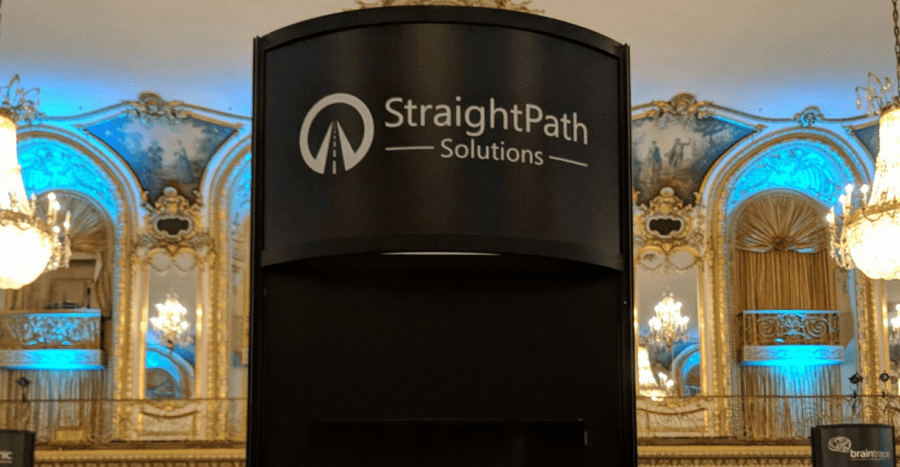We are happy to be sponsoring Relativity Fest again this year. It’s my 4th Relativity Fest, I believe. I’ll also be speaking alongside a couple of Relativians (or whatever they should be called post name change. I used to say kCurians) from the support and kIE team on managing huge case workloads. I wanted to throw this post out to answer three quick questions about our sponsorship and why we keep coming back, Relativity and SQL Server, and where attendees of the session can learn more.
Why is a SQL Server Services Firm Sponsoring Relativity Fest?
Great question! I’d love to say it’s just because Relativity puts on a fantastic conference with fantastic keynote speakers, runs a great show, has some excellent networking events at fun locations and Chicago is a fun city. But my accountant would give me that look at our next meeting. It’s sort of simple: I’ve been working with Relativity and SQL Server for a while now. I’ve helped migrate many folks up from pre 8 versions to the latest versions. I’ve been on teams that have helped give advice to then kCura for some performance enhancements, I absolutely LOVE how Relativity does their customer support and I’ve become a bit of a resource to the support escalation team at Relativity for tricky SQL Server questions. We’ve also built some significant relationships with Relativity using companies in our Relativity practice. Not just doing SQL these days either, but we have a smart Relativity admin/techie who has helped do some high visibility migrations and upgrades for clients and a strong Infrastructure engineer who has helped look at how Relativity environments are set up. We’ve done a lot of health checks for clients in the space, also. Sometimes proactive (we LOVE proactive SQL Server Health Checks), occasionally reactive in response to a real serious problem that someone bumps into along the way). We also have some great clients in our FlexDBA remote DBA services. So yeah, we sponsor to meet new faces and build relationsips with great companies. (We also wish we did more proactive SQL Server health checks for Relativity users, even if we’re just giving a third party Thumbs Up from database experts saying “yeah, they are amazing and doing it all right!” so we hope to spread the word about the need for them. Even if you do it with a competitor, on your own with scripts out there or you roll your own, we just don’t like the sad calls where a client wouldn’t have had a tough situation if they had that proactive review just a week before they called).
So that’s why. We aren’t building neat apps like Milyli or providing eDiscovery hosting or project management services like many of the vendors. We’re helping firms manage SQL Serve better. We’re trying to help spread the word that database health matters and you are your own DBA at the end of the day, so if you don’t have the role covered, you should really talk to at least someone out there to make sure all is well.
Plus I’ve always liked the Heath Brothers since I first read Made to Stick way back when. And I’ve been meaning to buy their latest and would love to hear what they have to say on Tuesday in their keynote.
Relativity and SQL Server – Isn’t Relativity My DBA?
No! They just do a really amazing job setting you up for success and supporting you with questions that border on the DBA front. They have, hands down, one of the best client support organizations out there. Forget “the extra mile”, they go an extra 479 miles. But they aren’t your DBA. They give you an environment optimization guide. They give you great advice. They’ll lean on their lengthy experience working with SQL Server with their customers or in their own hosting and help you out, but they can’t do your alerts, your monitoring, your integriy checks to make sure you aren’t experiencing database corruption or hunt down missing indexes regularly. They aren’t the ones who will evaluate the latest SQL Server or the best High Availability solution for your needs.
You really should have your own DBA. But then the question comes, “Do we need a full time senior level DBA?” Maybe. It depends on your size and what you are doing. We’ve gone into some of the biggest PHPs of Relativity to do health checks, infrastructure assessments and some external advice and tips. When you have 15 separate instances of SQL Server (just for Relativity let alone your other SQL Servers), cross country DR and expensive and complex VM solutions, it makes sense to have a DBA (or two) on staff. But what about the firms that have a single instance of SQL with everything on it? Or the small host with a strong tech team and a lot of “accidental DBAs” ? Now I’m biased, but I’d say probably not. Not all the time. But when you do have the need? It’s nice to have that team already there. That’s where we come in. Our FlexDBA service allows a firm to have a team of SQL Server experts on “retainer”. We have monitoring and alerting setup. We do regular health checks. We give hours each month and leave some which rollover month to month for the emergencies or big projects. Your team can do what they are great at. We can cover the databases and serve as an internal escalation point. Instead of the equation looking like $145,000/year plus beneftis and taxes for a Senior full time DBA as an insurance policy, it looks like $1,800 or $3,000 a month for an entire team that isn’t all on vacation at once and is senior there to support you. With a 24/7 x 15 minute SLA ability for not a lot more.
I Attended The Session Have Some Links?
Thanks for attending! I know I was quiet for much of it, Carlo and Jared are really pretty smart, eh? Some good advice and tips were thrown at you there. I talked a a bit about SQL Server indexing and the impact field choices and communication can have on that. I even threw a phone book around some and talked about tuning in the context of the phone book.
A few links we talked about are here (and please come back maybe a week after the session, I’ll probably add more based on the actual delivery of the session and follow up questions):
- The Environment Optimization Guide – from Relativity. This guide helps you set SQL Server up on the right foot.
- Ola Hallengren Maintenance Solution – Roll on some maintenance for your environment if you haven’t!
- Straight Path’s SQL Server Health Check Checklist – guides you through checking the most common challenges on your own
- Sargability – We talked about Search Arguments and indexes and how searches can impact. This answer on Stack Overflow goes into that a bit.
- SQL Server Indexing – a semi-gentle introduction to SQL Server indexes.
- Straight Path’s Relativity Page – We talk about some services we offer. Come by our booth this week and ask for a “prescription” for a discount on our SQL Server Health Check.


